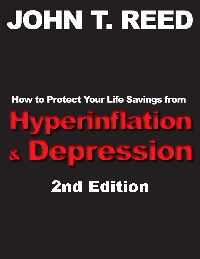Australia now requires in-person visit to open bank acount
Posted by John Reed on
A reader told me, and I confirmed, that you now have to go to Australia in person to open an account. New Australian law I believe. When I went there in 2013, the trip cost $1,390 (round trip SFO to Auckland NZ). Not sure what the current cost US to Australia is, but probably in that range. Is having the account there worth the trip?
It get’s you diversification and accounts are more usable than Australian cash in a Canadian safe deposit box. You have to go to a box in person for everything. With an account in Australia, you only have to go once in a lifetime.
The reader also said you need to be planning to immigrate to Australia but I had heard that before and was told I was in another category—investor or some such—but check that part out too before you buy a plane ticket.
This may be partly due to the U.S. FATCA law, which seeks to discourage you from having a foreign account and to discourage foreign banks from letting Americans have them.
One one level, I would say this manifests an increased need to open such accounts. The national debt has not gotten any lower and there have been a number of government and banking moves that are scary.
If you were planning on opening the Australian account but had not yet gotten around to it, you now have a taste of the feeling you may have if you keep on postponing until it’s too late to move your rainy day saving abroad by any means, anywhere. See my article “They are building a financial Berlin Wall and you are on the wrong side of it.”
Today’s San Francisco Chronicle has a poignant headline: “Victims of fire didn’t evacuate when notified.” The fire in question is the Valley Fire that has been burning for weeks in Lake County north of where I live in California. Here is the pertinent quote:
“…at least three of the deaths shared a common element—victims who, for one reason or another, declined to take off immediately when first warned by police, neighbor or loved ones.”
My advice on hyperinflation is risk management. Risk management is a field in which it’s hard to predict timing. But it is also a field in which being too early has little meaning. For example, I have been buying home fire insurance since 1972. I never had a home fire. So I bought it too early.
But it is also true that in risk management, being too late is absolute catastrophe and the dead in the Lake County fire are sad examples of that.
I have been warning people about hyperinflation and explaining the risk-management techniques that apply to it since 2010. Getting your rainy day savings out of the USD is a key one of them. Indeed, that is probably one of the top two. A couple of people have said that my “predicting” it and it not happening yet means i’m an idiot.
I don’t predict. The first sentence of my book How to Protect Your Life Savings from Hyperinflation & Depression says, “It could happen tomorrow.”
Note the word “could,” not “will.” Charlatans predict. Risk managers identify that which could happen and take appropriate steps to protect themselves before it happens.
My following my own advice has accomplished what my purchases of fire insurance have accomplished: giving me peace of mind. They also got me an Australian bank account in a country where they are now harder to get.
Also, the meaning of the hyperinflation risk I and many others have expressed concern about not happening in the last five years does not mean it won’t happen. On the contrary, it means it is getting closer in time and will be more severe when it happens. The phrase “a stitch in time saves nine” can also be stated as “If you don’t do a needed stitch promptly, you will likely need two stitches later, then three, then four , and so on.” The number of stitches you need if you procrastinate does not stop at nine. That’s just a number that happens to sort of rhyme with “time.” The consequences of procrastination just keep increasing until the catastrophic failure.
In contrast, my risk-management steps are fairly simple, low-cost, and low-risk—like fire insurance.
Share this post
0 comment

